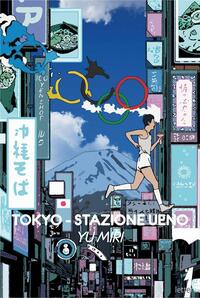You need to sign in or sign up before continuing.
Take a photo of a barcode or cover
reflective
sad
slow-paced
Plot or Character Driven:
Character
Strong character development:
N/A
Loveable characters:
Yes
Diverse cast of characters:
No
Flaws of characters a main focus:
Yes
Random and weird, but the last 40 pages are suspenseful and atmospheric
1.5
There’s nothing bad really
I don’t really know why I didn’t like it
There’s nothing bad really
I don’t really know why I didn’t like it
dark
emotional
reflective
sad
medium-paced
Plot or Character Driven:
Character
Diverse cast of characters:
Yes
I don't know, man. This book is good but it was just to meandering for me at the moment. Maybe it's because I've been bouncing between the NICU and my house, but I could never really fall into this novel. I think because of the way it fans out and wanders around.
You may like this a lot, but I ended up giving up after about 120 pages. It just never completely grabbed me.
You may like this a lot, but I ended up giving up after about 120 pages. It just never completely grabbed me.
dark
emotional
reflective
sad
medium-paced
Plot or Character Driven:
Character
Strong character development:
Yes
Loveable characters:
Yes
Diverse cast of characters:
No
Flaws of characters a main focus:
Yes
emotional
reflective
sad
fast-paced
Plot or Character Driven:
A mix
Strong character development:
Complicated
Loveable characters:
N/A
Diverse cast of characters:
N/A
Flaws of characters a main focus:
Complicated
dark
emotional
sad
medium-paced
Plot or Character Driven:
Character
Strong character development:
No
Loveable characters:
N/A
Diverse cast of characters:
No
Flaws of characters a main focus:
Yes
informative
reflective
sad
medium-paced
Plot or Character Driven:
A mix
Strong character development:
No
Loveable characters:
Yes
Diverse cast of characters:
No
Flaws of characters a main focus:
No
Tokyo Ueno Station is told from the point of view of a ghost. We alternate between his observations of people around him with memories of his life story. He lived in varying degrees of poverty. Occasionally, the main character’s life is influenced by the Emperor of Japan.
This short book is sad and almost poetic.
This short book is sad and almost poetic.
reflective
sad
slow-paced
Plot or Character Driven:
Character
I spent almost two weeks with this book, not because it was long but but because the weight of its sadness stayed with me long after I closed each chapter.
It is deeply sorrowful, quietly devastating. Kazu’s life runs parallel to the imperial family. So close, yet worlds apart. His son was born on the same day as the Crown Prince, a detail that feels almost cruel in its symbolism. His work on the Olympic construction sites meant to usher in national pride, only highlights how invisible he truly was.
The novel draws a contrast between two lives, two Japans: one exalted, the other discarded. It left me feeling hollow and heavy, like I had witnessed something quietly tragic and unbearably real.
It’s a melancholic reflection on grief, displacement, and the quiet suffering so many endure without being seen.
The novel draws a contrast between two lives, two Japans: one exalted, the other discarded. It left me feeling hollow and heavy, like I had witnessed something quietly tragic and unbearably real.
It’s a melancholic reflection on grief, displacement, and the quiet suffering so many endure without being seen.






